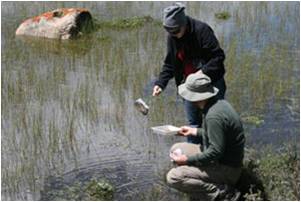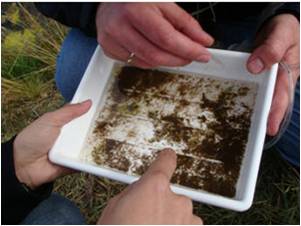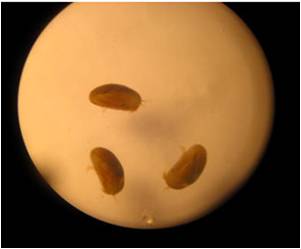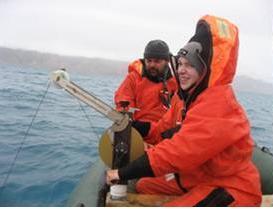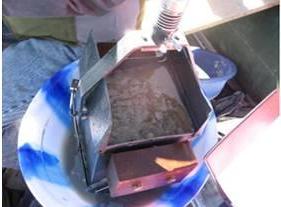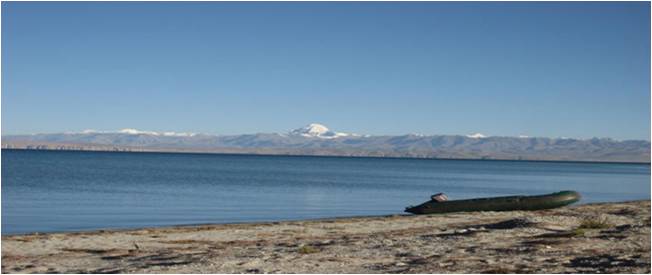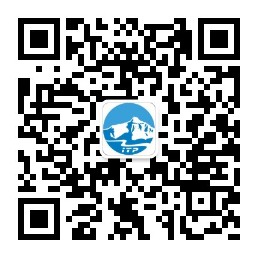| News |
| Latest news | |
| Int’l Cooperation activities | |
| Events & Announcement | |
| Recent Activities |
| Location: Home>News>Recent Activities |
| Lake ostracod sampled in the southern Tibetan Plateau |
|
During the Sino-German joint expedition to South Tibetan Plateau from Aug.16 to Sep. 30, 2009, scientists sampled lake ostracods from water body of different chemical features, aside testing their sub-water environmental parameters to facilitate the construction of proxy-paleoenvironment transfer models for Tibetan Plateau climate and environment study. The joint expedition was financed by National 973 Project ‘Environmental changes on the Tibetan Plateau, their responses to global changes, and human adaptations’, and Deutch ForschungsGemeinschaft (DFG) Priority Programme ‘Tibetan Plateau: Formation-Climate-Ecosystems’. Ostracod sampling in the field was conducted in two ways, i.e., survey of micro-lakes and twenty-one permanent ponds en route, selecting and roughly categorizing ostracods on site, and preliminary investigation and sampling in some selected lakes, including Muge Co, Zimei Hai, Basum Co, Beng Co, Pangma Yumco, Dangre Yumco and other lakes. Living environment parameters of ostracods were measured in the field, obtaining such data as lake depth, temperature, pH value, electronic conductivity, salinity, and dissolved oxygen (DO). In general, the expedition harvested in 73 samples from lake horizontal profiles for ion chemistry testing in the laboratory, together with 83 surface sedimentary samples from various water bodies or at different lake depths.
Investigating the water quality and collecting modern ostracods
Searching for modern ostracods
Microscope view of ostracods
Manipulation of a lifting grab bucket during the lake surface sediment sampling
Lifting grab bucket and samples it collected
Pangma Yumco and Mt Gangrenboqi in the distance |
